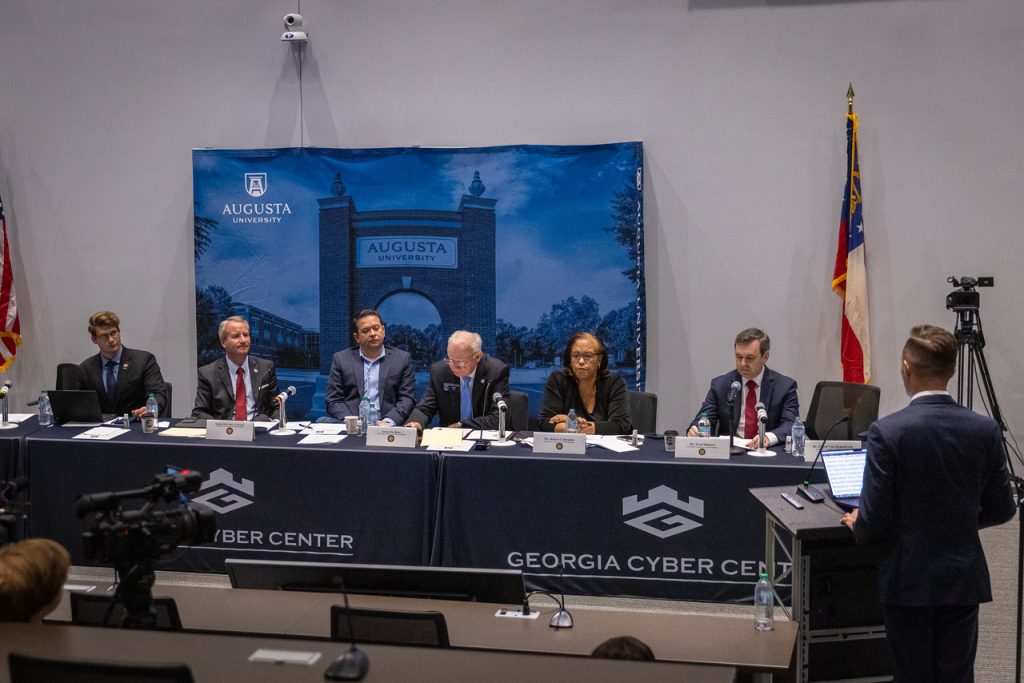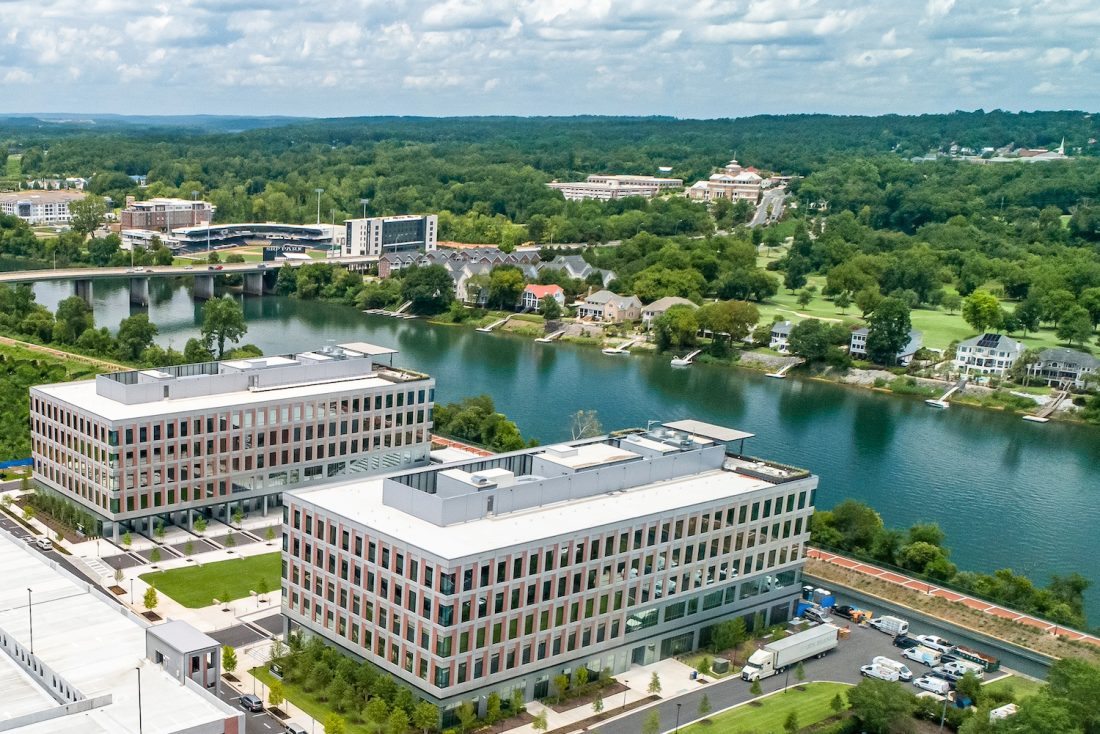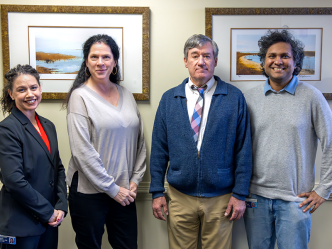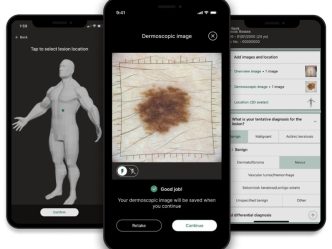The Georgia General Assembly is considering several bills this session involving artificial intelligence and its impact across the state, including differences it can make in health care.
“Artificial intelligence is changing the trajectory of health care in this state and throughout the country,” said Augusta University President Russell T. Keen. “From improving diagnoses to accelerating the discovery of more effective treatments, AI can be a valuable tool across the entire spectrum of health care specialties. We look forward to partnering with the state and elected officials to support the development of AI integration plans for higher education systems here in Georgia.”
The House and Senate are currently reviewing seven bills related to AI including HB 147, HB 171, HB 478, SB 9 , SB 37, SB 104 and SB 167.
Last year, the Senate Study Committee on Artificial Intelligence spent months examining AI technology’s transformative potential and implications across key sectors including education, public safety, health care, entertainment and agriculture.

“I believe AI will bring some of the greatest answers to some of the most important questions we have. I do believe this will be the type of tool that will do things like cure cancer, but, like anything that is that powerful, it also has the potential to do harm.”
State Sen. John Albers, R-Roswell
The nine-member committee chaired by State Sen. John Albers, R-Roswell, included local legislative delegation member, State Sen. Max Burns, R-Sylvania.
One of the committee meetings in September was hosted by Augusta University at the Georgia Cyber Innovation and Training Center, home of AU’s School of Computer and Cyber Sciences. Several members of the House Study Committee on Artificial Intelligence also attended the meeting in Augusta.
During the meeting, Burns thanked Keen for welcoming the committee to the Georgia Cyber Center, explaining it is a hub of collaboration between academia, private industry and government agencies.
“I’m glad the committee is at the Georgia Cyber Center today to gain the input from this region and the expertise that we enjoy here,” Burns said, adding the Georgia Cyber Center serves as a training ground for aspiring cybersecurity professionals, a testing ground for cutting-edge technologies and a space for fostering partnerships and knowledge exchange.

“I’m glad the committee is at the Georgia Cyber Center today to gain the input from this region and the expertise that we enjoy here.”
State Sen. Max Burns, R-Sylvania
Albers said it was important the committee members hear from the experts at the Georgia Cyber Center to better understand the future of AI, not only in Georgia, but throughout the world.
“Artificial intelligence is probably the largest impact of anything in our entire lifetime,” Albers said. “And as your Senate here in the state of Georgia, we are committed to making sure we are doing everything possible to encourage innovation, while also protecting and putting the right parameters in place for those who will be impacted by it.”
“I believe AI will bring some of the greatest answers to some of the most important questions we have,” he added. “I do believe this will be the type of tool that will do things like cure cancer, but, like anything that is that powerful, it also has the potential to do harm.”
Currently, Augusta University is researching ways to use artificial intelligence to improve everything from health care and cancer treatment across the state, to creating conversational, AI-powered, augmented reality to facilitate secondary language learning.
Scientists at Augusta University’s Medical College of Georgia are also using AI to examine how molecules interact, as well as analyzing genomes and biomarkers to diagnose and provide types of treatment for the best outcomes for the patient.
Artificial intelligence is also helping oncologists at the Georgia Cancer Center streamline diagnosis and treatment for lung cancer patients, an especially important development for those living in rural areas within a 75- to 100-mile radius of the facility.

“Artificial intelligence is changing the trajectory of health care in this state and throughout the country.”
Augusta University President Russell T. Keen
Albers said the Georgia Legislature is working to promote the positives of AI technology and protect the state from any potential negative consequences as a result of the technology, calling it a “balance.”
Following the eight statewide meetings last fall, the Senate Study Committee on Artificial Intelligence unanimously approved a detailed 185-page report late last year to guide Georgia’s approach to AI implementation.
“Artificial intelligence represents one of the most dynamic and complex advancements of our time,” Albers stated in a press release. “This committee worked diligently to ensure Georgia is not only prepared for the opportunities AI offers but also vigilant in addressing its challenges, from ethical concerns to workforce implications.
“From addressing food security through precision agriculture to enhancing emergency response and advancing personalized education, AI has the potential to improve every Georgian’s quality of life,” Albers added. “However, we must balance innovation with safeguards to protect privacy, fairness and transparency.”
 Augusta University
Augusta University




